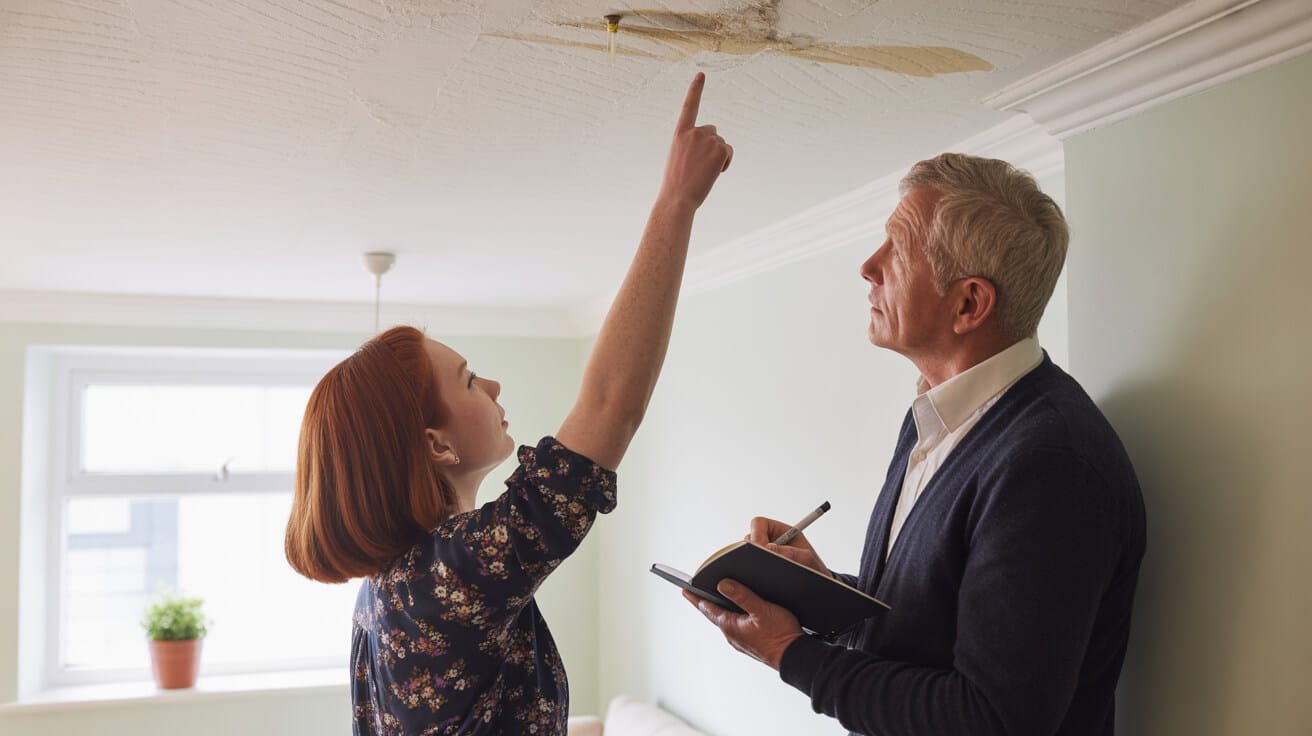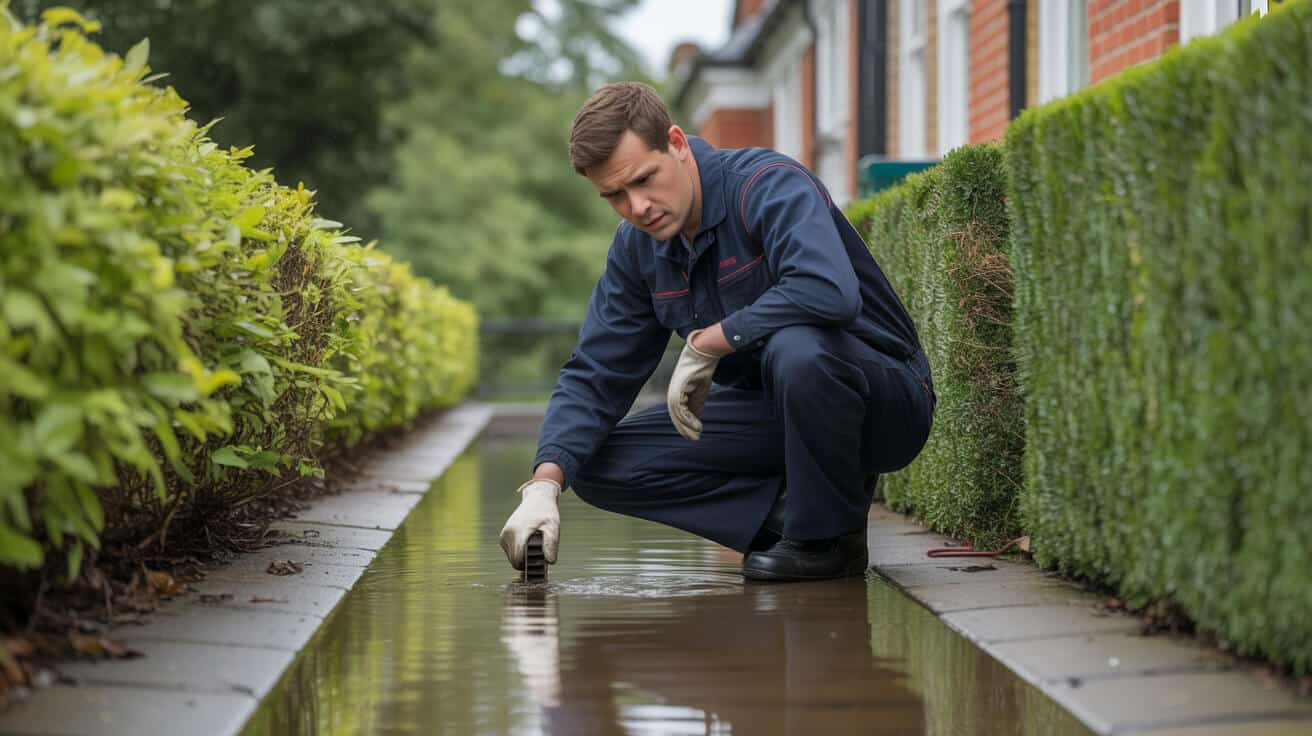 Why Does My Water Smell Like Eggs
Why Does My Water Smell Like Eggs
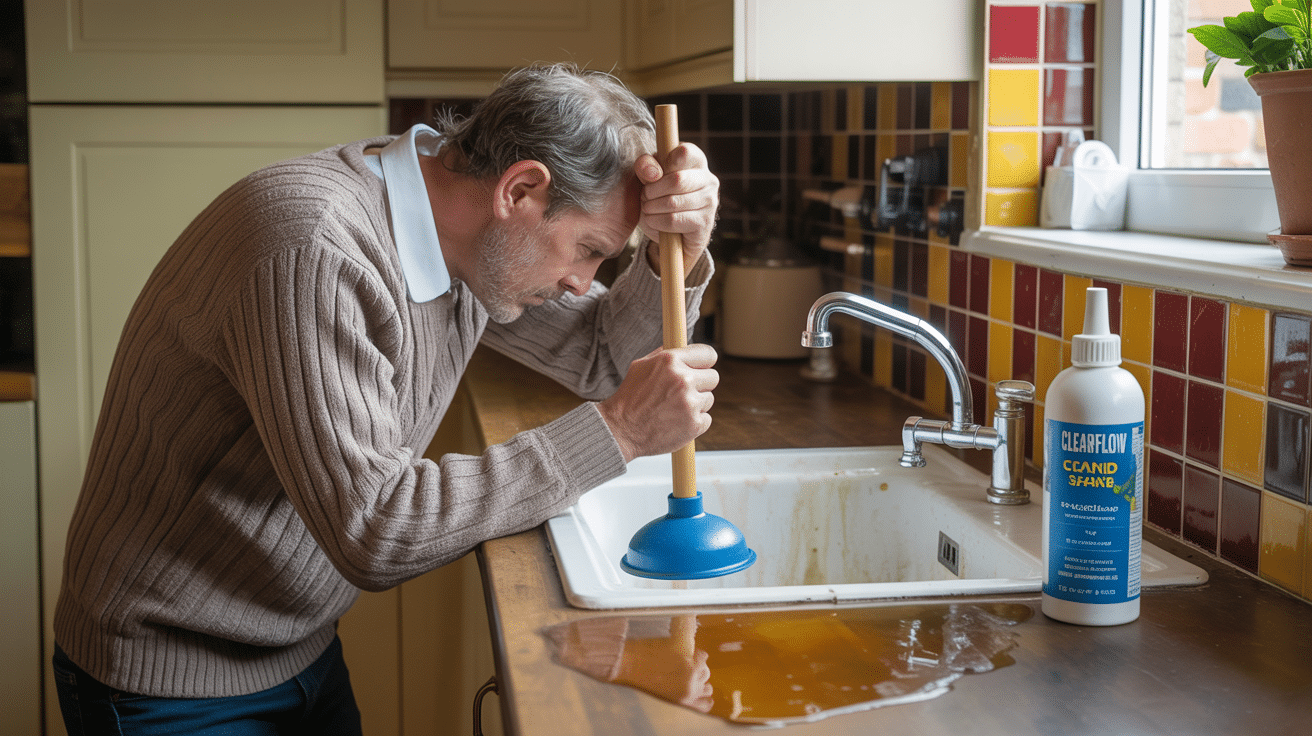
Why Does My Water Smell Like Eggs? Stepwise Fixes for UK Homes & Property Managers
A sudden rotten egg or sulphur smell from your taps isn’t just an everyday annoyance—it sends a message your water system needs prompt attention. Whether you own a home, manage multiple properties, run a block of flats, or keep public and commercial buildings in line with regulations, water odours can quickly erode peace of mind, unsettle tenants, and cast doubt over your compliance and hygiene record. Acting fast isn’t about panic—it’s about owning the standard of your building and reputation for anyone relying on your water.
If your tap smells strange today, your plumbing history becomes the headline. Proactive fixes always cost less than letting things slide.
Odour issues demand more than plug-in “fresheners” or online hacks—they call for a cool-headed root cause approach, long-term prevention against recurrence, and documentation that stands up to scrutiny from letting agents, councils, or insurers. The good news? With the right steps, you can knock odours on the head and make your property or portfolio a standard-setter in water safety and care.
What Causes an “Eggy” Smell in UK Water—and Why Source Location Matters Most?
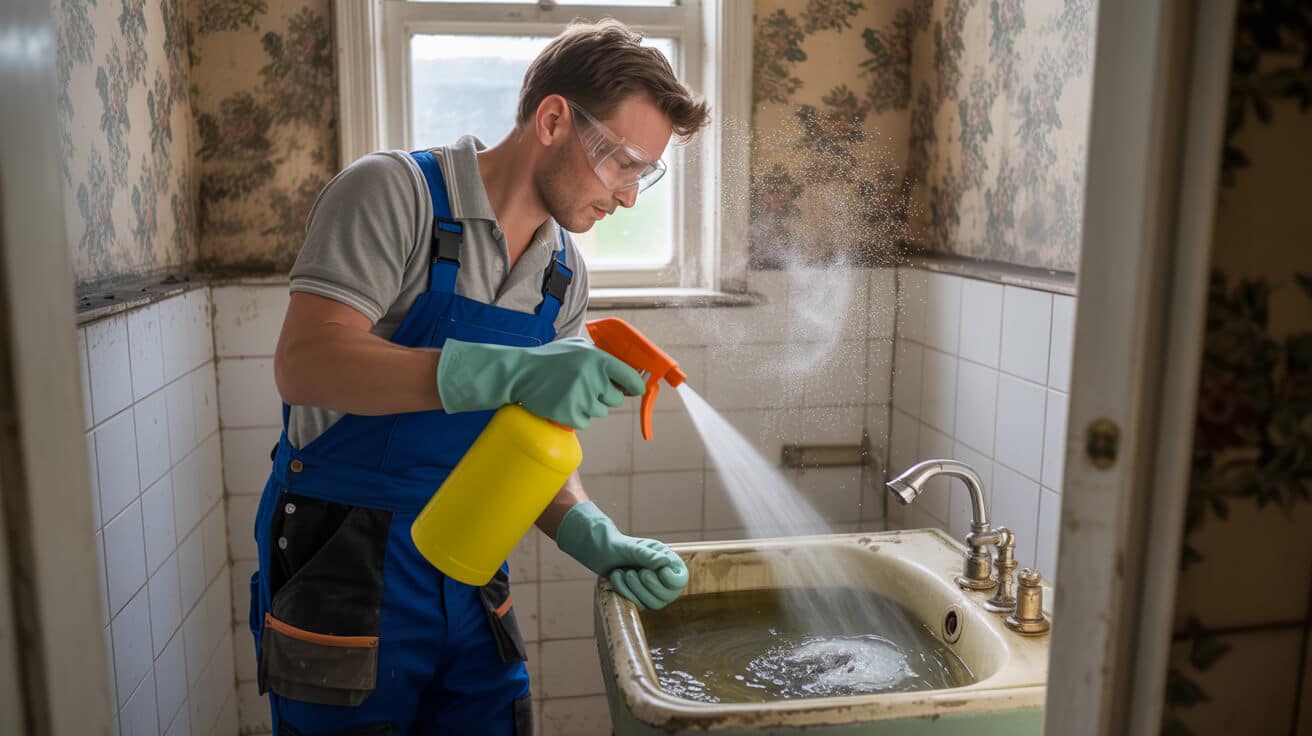
When water in your building smells like rotten eggs or sulphur, something has shifted—guesswork delays a solution and doubles bills. Fast, effective resolution means pinning down exactly where the smell emerges:
- Hot taps only: Your hot water cylinder, combi boiler, or related pipework is almost always the culprit.
- Cold taps only: Problems can start in the storage tank (often in the loft), seldom-used pipe runs, or the mains water supply itself.
- Both hot and cold: The issue almost always points to a system-wide or supply-wide cause—not just a rogue bathroom.
Practical first step: Run every tap—kitchen, bath, utility, garden, and little-used outlets. Notice if the odour’s worse first thing in the morning or after water’s sat idle. This simple detective work lets you or your plumber cut straight to the source, saving you hours of disruptive, repetitive callouts.
When you map the stink to hot, cold, or both—you can eliminate 80% of the wrong paths before you start.
At Plumbers 4U, our engineers insist on this opening scan every time—whether at a single house, a managed block, or a business site—so every fix is targeted, not trial-and-error.
What Actually Produces Rotten Egg or Sulphur Smells in UK Water Systems?
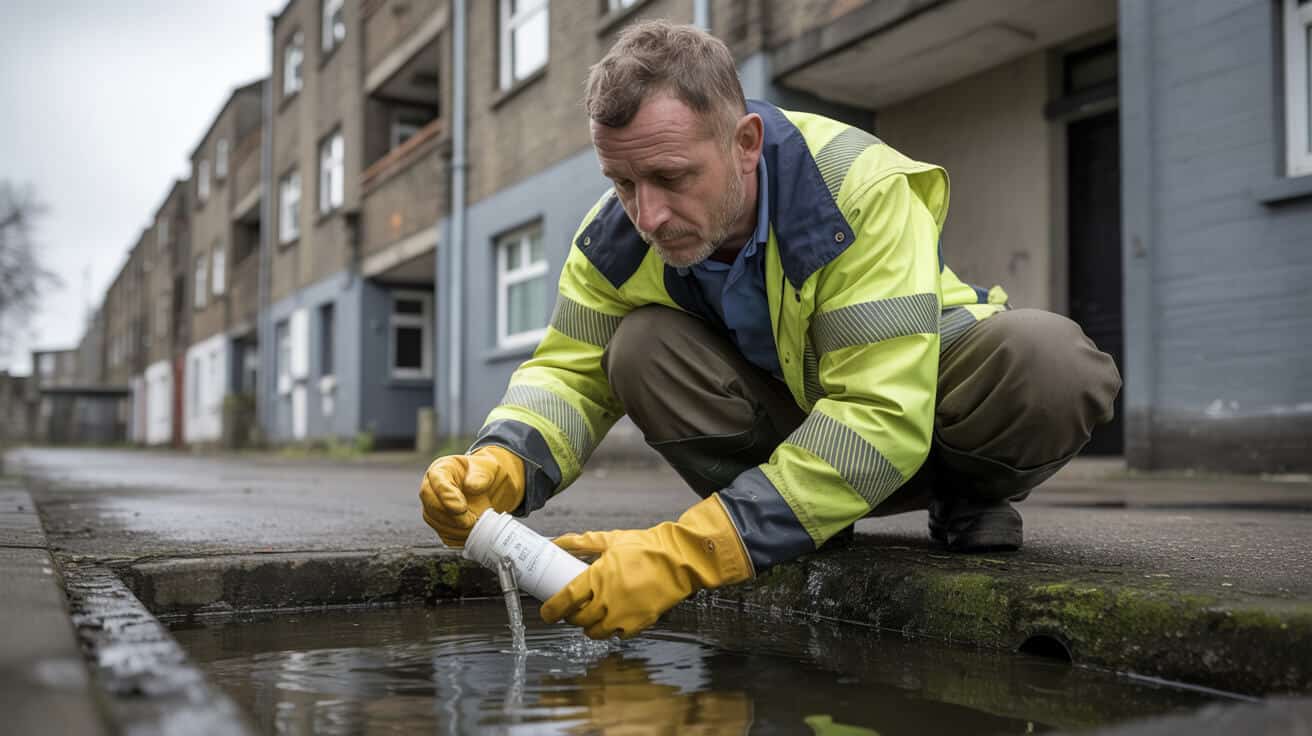
That unmistakable eggy taint is hydrogen sulphide gas (H₂S), released when bacteria thrive in slow-moving or stagnant water. Inside older cold-water loft tanks, poorly insulated cylinders, or dead-end pipework, bacterial colonies set up shop—especially if regular use or routine flushing isn’t happening. In hot water tanks with magnesium or aluminium anode rods, a chemical reaction with minerals and bacteria can generate the same gas when service intervals slip.
- Anaerobic bacteria: thrive in cold water tanks and pipe dead-ends, multiplying whenever water sits for long periods.
- Hot water systems: that aren’t running near 60°C, or that use sacrificial anode rods and miss annual checks, provide their own little chemistry set for H₂S.
- Dead-leg pipework: and longstanding cap-offs in extended properties trap water, giving bacteria a perfect playground—particularly in heritage flats and adapted commercial premises.
If neglected, these spots become breeding grounds for corrosive water, pushing odours right through the house—and quietly shortening the lifespan of pipes, valves, radiators, and tanks.
Hydrogen sulphide can form anywhere water stagnates or bacteria find a toehold. Flushing and scheduled maintenance stop most trouble before it starts. *(WRAS/UK Water, 2024)*
Renovations or local utility work sometimes stir up settled biofilm, sending unfamiliar smells, grit, or discolouration right along a system. That’s why what looks like “bad luck” is often a warning sign you’ve got a fixable, routine issue.
Hot Taps Smell—but Cold Taps Don’t: Is It a Cylinder, Boiler, or Timer Problem?
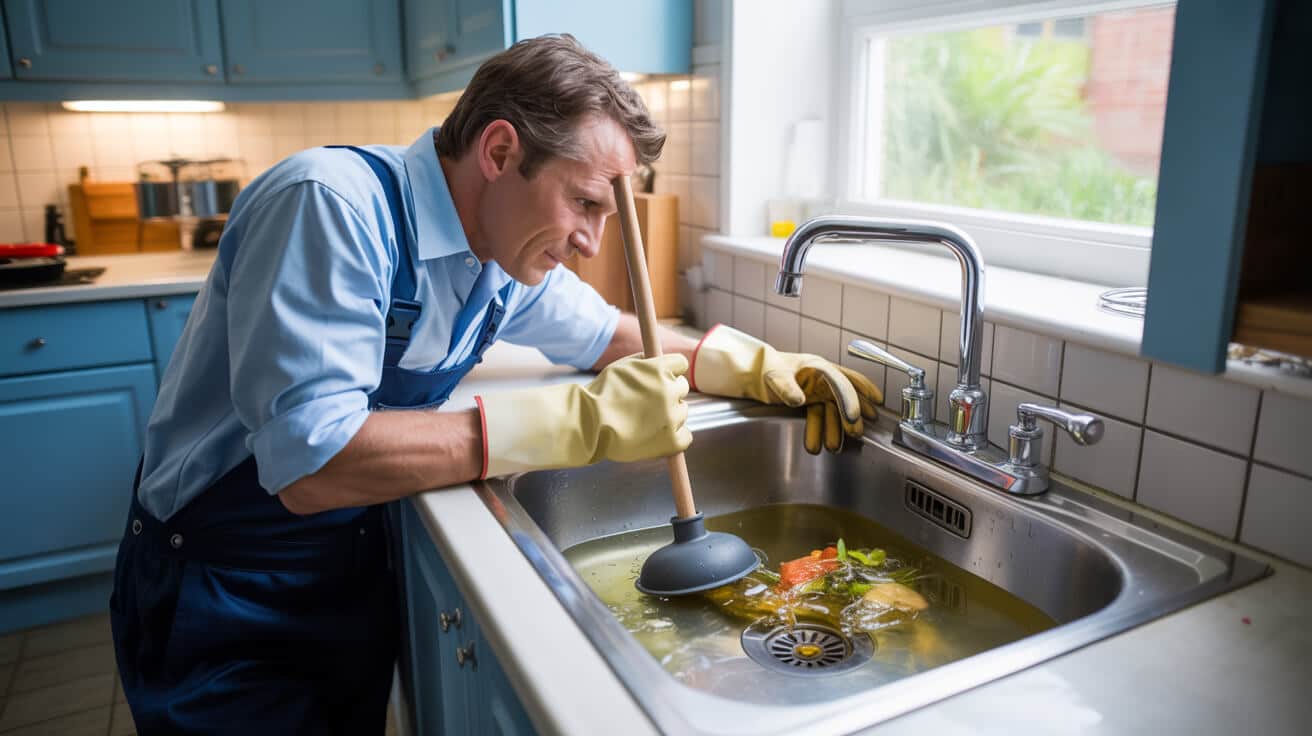
When your hot water alone smells like sulphur (but the cold doesn’t), your focus narrows to the water heating system—hot water cylinders, combi boilers with little-used hot outlets, or localised heaters under the sink.
Here’s the science:
- As water sits below 60°C inside a tank—commonly driven by attempts to save energy—bacteria flourish unseen, especially overnight.
- Magnesium or aluminium anode rods (used to shield tanks from corrosion) can boost bacterial activity and trigger H₂S when reacting with minerals.
- Timers and smart systems that leave the tank idle for long spells frequently invite this, with worst odours often after bank holiday absences or staff shutdowns.
DIY triage: If you flush the hot tap for a minute and the stink vanishes, save yourself worry: it’s almost always a remedial servicing task—not pipework rot or full system breakdown.
What a professional does:
- Drains, disinfects, and gives your cylinder a deep flush
- Swaps or upgrades the sacrificial anode for a more suitable one
- Applies “thermal shock” to kill bacteria, never breaching WRAS/G3 safety
- Cleans thermostatic mixing valves, where bugs can hide from temperature cycles
For landlords, council managers, or commercial directors, all unvented or system cylinder work has to be G3-qualified—both for property safety and so warranties stay valid.
Cold Taps Smell—but Hot Taps Don’t: Should You Focus on Tanks, Pipes, or Mains?
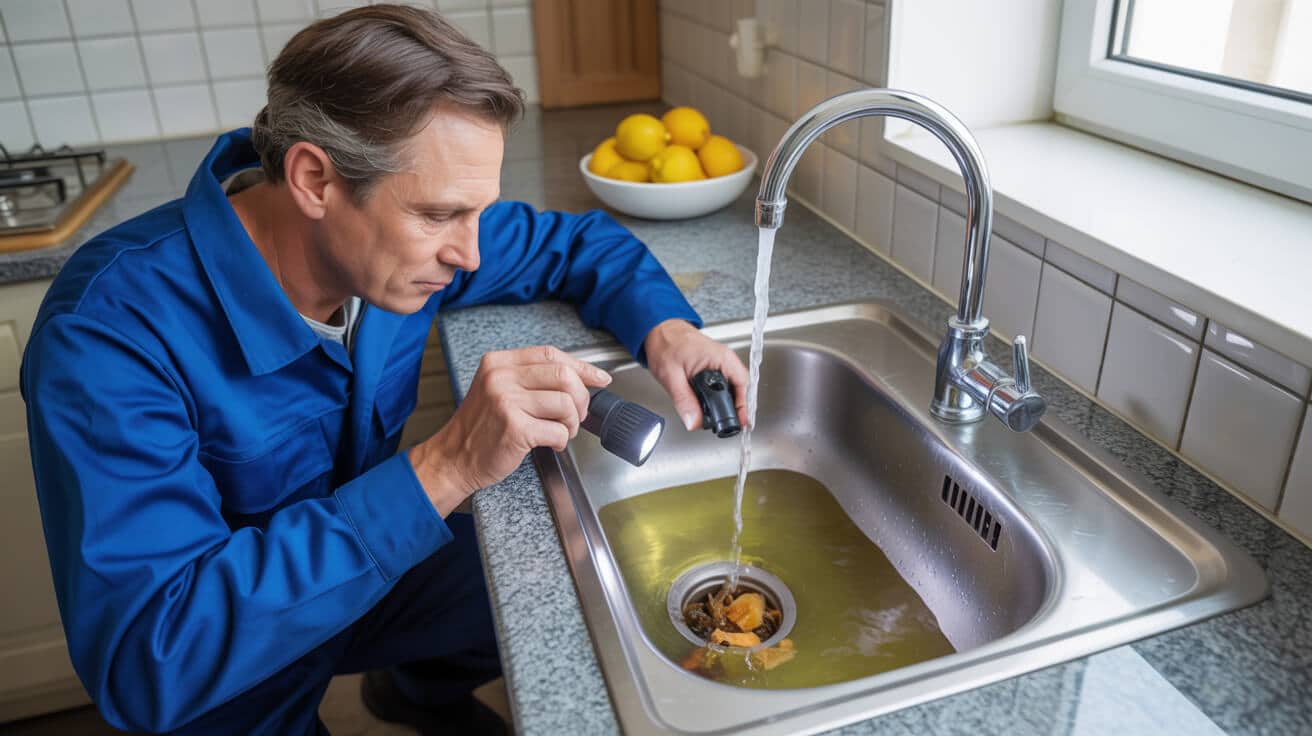
If your cold taps carry the foul odour but the hot ones don’t, shift focus to the water supply chain and stagnation points.
- *Does the odour linger after running the cold tap for a full minute?* The main supply or communal storage may be at fault. Check with neighbours—do they notice a smell? If so, it could be a public mains issue (linked to utility work or infrastructure repairs).
- *Dead-legs and capped pipes*: These water “culs-de-sac” turn stagnant quickly, especially in redirected pipework after kitchen or bathroom upgrades. Stagnation breeds bacteria, which means odour—no matter what you do at the taps.
- *Roof or loft tanks*, left unsealed or poorly insulated, are classic breeding grounds—especially in summer or on commercial roofs exposed to direct heat. Debris, birds, and sunlight create a five-star hotel for hydrogen sulphide microbes.
- *Metallic, “tinny” aftertaste?* That’s corrosion in old tanks or pipes, which accelerates odours and guarantees leaks if not remedied.
If you manage long-term lets, blocks, or public sites, tank hygiene, annual flushing, and Legionella checks aren’t only best practice—they’re a legal duty, actively monitored via HSE ACoPL8 L8.
Tap flushing is a bandaid—cold water odours always deserve full-site inspection, not just a few seconds at a single outlet.
If roadworks or the public supply are to blame, report it immediately—water authorities have a statutory duty to investigate, prove, and document any breach.
What If Both Hot and Cold Taps Smell? When Does the Whole System Need Attention?
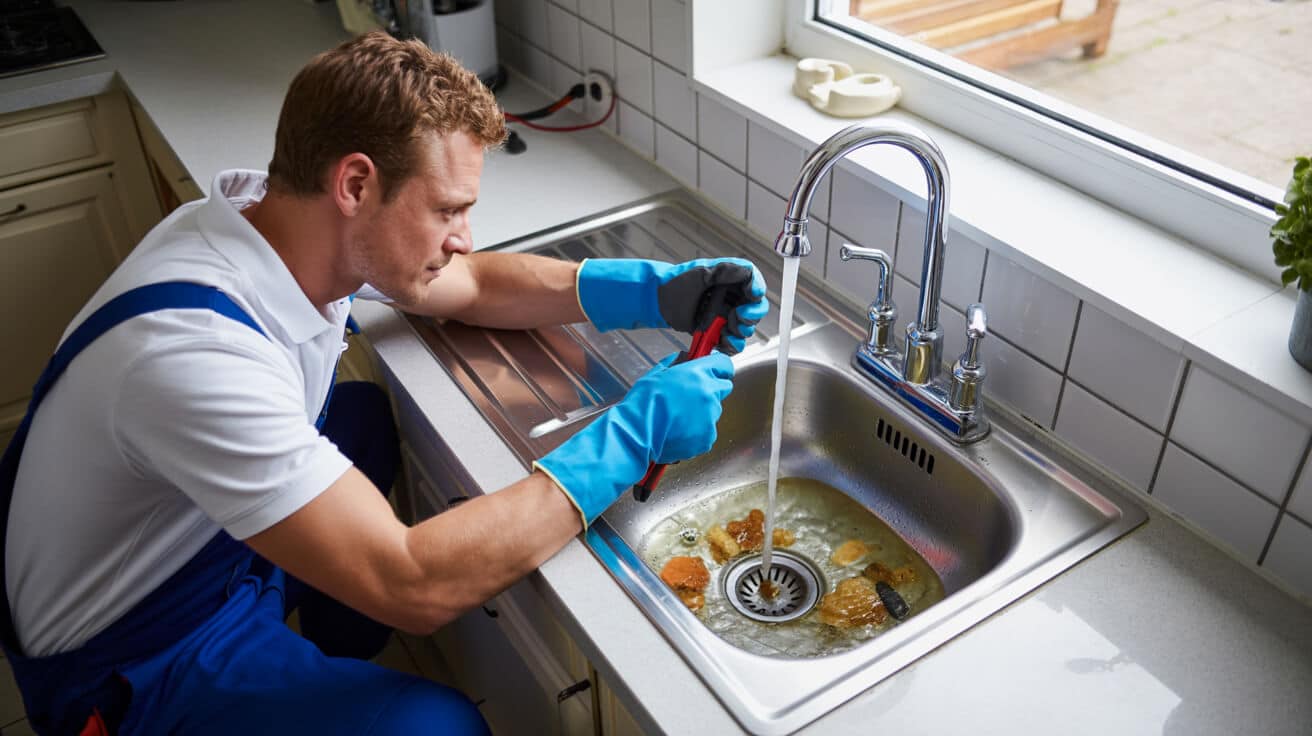
A sulphur stink from every tap (hot and cold) is your cue to step back and review the whole system or the whole building supply—because rarely is it just one fixture or bathroom at fault.
- *Block-managed, older flats or hotels* often carry communal roof tanks or risers where maintenance has lapsed. Here, bacteria settle and multiply, migrating from tank to every occupied unit.
- *Recent pipe upgrades, tank replacements, or public mains work* can stir up gritty sediment and biofilm, sending odours and water discolouration to every sink temporarily.
- *Rural properties* or those on *private boreholes and wells* frequently see natural surges in sulphate and bacteria after floods or heavy weather, leading to widespread “off” water.
| Odour at | Typical Source | Recommended Action |
|---|---|---|
| Hot only | Cylinder/anode/bacteria | Full cylinder service/flush |
| Cold only | Tank or pipework | Clean tank, remove dead-legs |
| Both | Mains/system-wide | Audit, sample, call supplier |
Managing agents and block directors: Always isolate whether things are “local” (one sink, one flat) or “site-wide”. Interventions at the flat-level often waste time if the tank or mains has the problem.
When odours reach multiple units, it isn’t bad plumbing luck—it’s a reflection on the system’s recent care (or neglect).
Tenants reporting issues in adjacent flats or adjacent properties? Document everything and escalate; quick fixes rarely last until the main source is verified.
Are There Health Risks from Hydrogen Sulphide in Tap Water? What Hazards Come with Ignoring It?
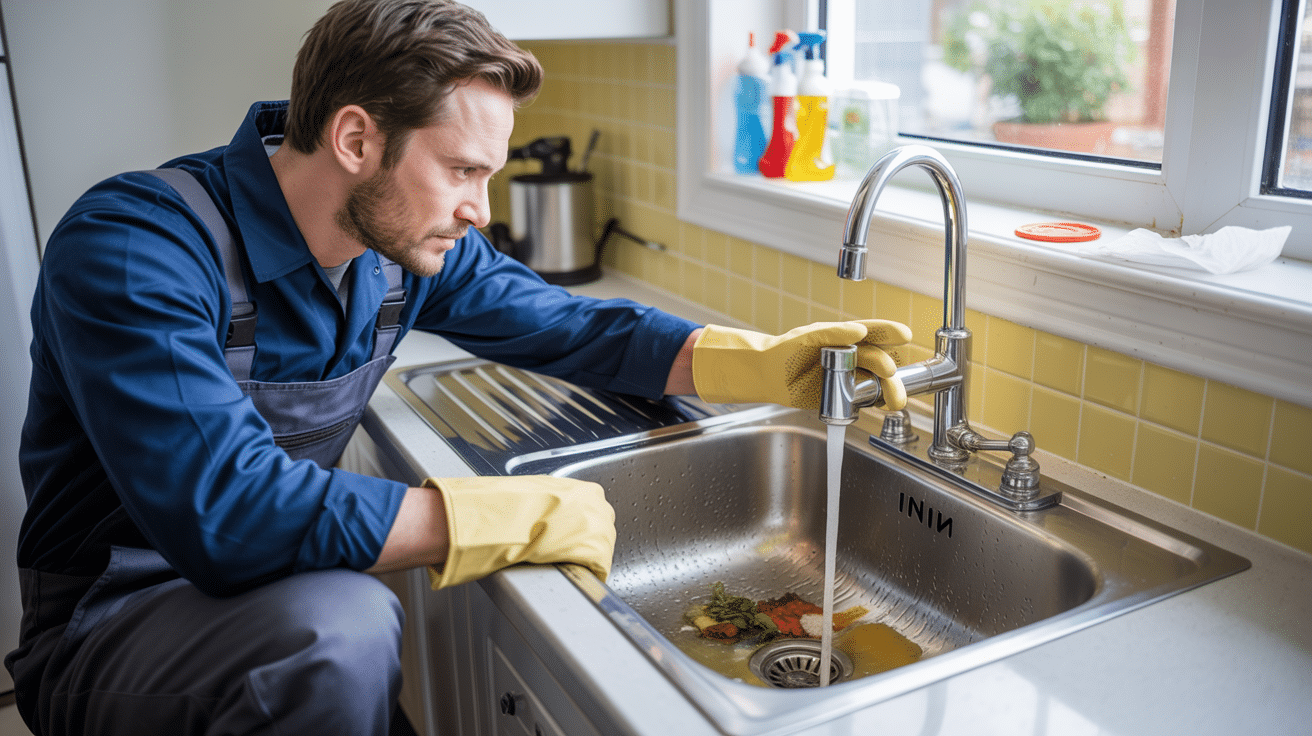
Hydrogen sulphide in domestic and commercial systems isn’t usually immediately dangerous, but it is always a sign that the water quality standard has slipped. Adults facing a short whiff at the tap might stay well, but:
- *Consistent or strong odours* are always a stop sign for drinking—especially for children, elderly, or immunocompromised occupants.
- Persistent H₂S can corrode copper, brass, and steel from the inside—speeding up leaks, limescale, and silent pipe damage.
- Public-facing and commercial sites can see failed food hygiene or care compliance audits, with odour cited as a “symptom of possible contamination.”
- insurance and landlord claims for water or bacteria damage often come with a clause: “failure to maintain” (with complaints logged but unresolved) means loss of cover.
Ignoring water odour is a short-save, long-pay move: what costs nothing this week can come back many times over when a future leak or failed audit lands.
The Plumbers 4U playbook includes documented, photo-logged aftercare so you never face awkward conversations with property owners, letting agents or insurers about “what was actually done”.
How Do Plumbers 4U Engineers Actually Solve Eggy Water Smells—for Good?
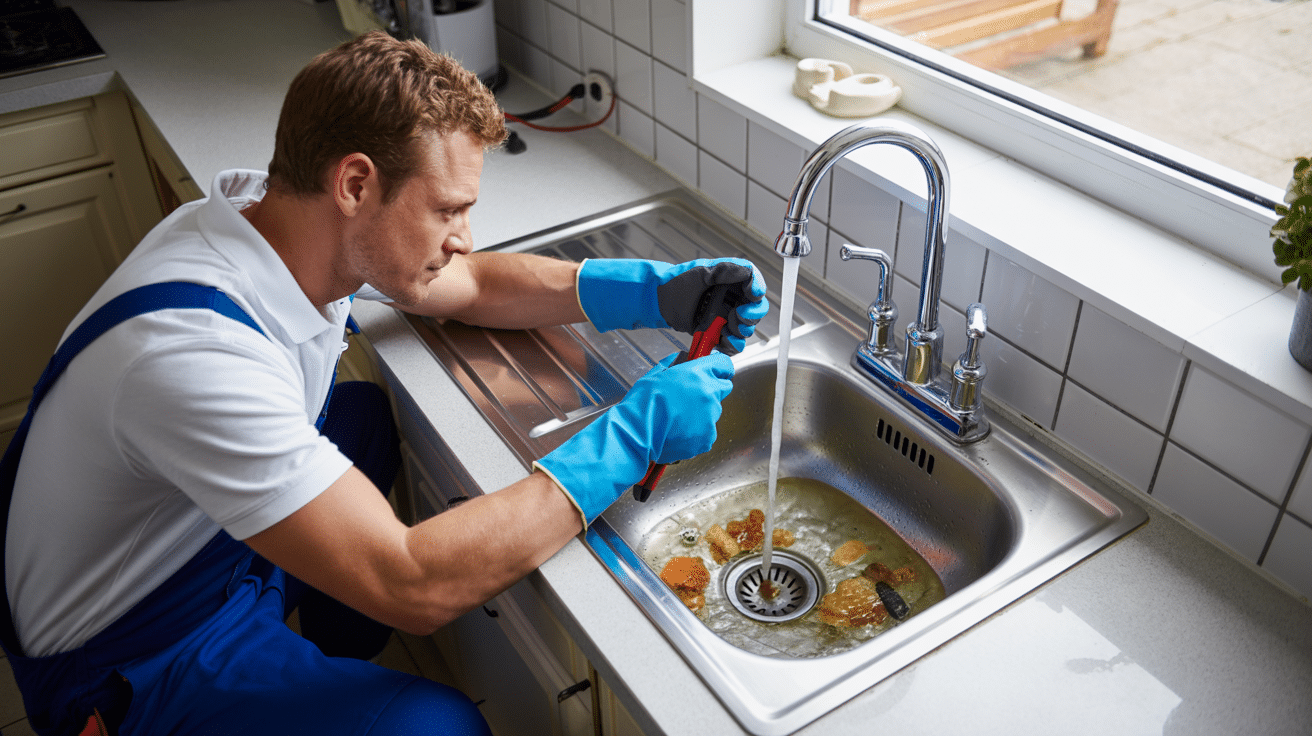
Plumbers 4U engineers follow a down-to-earth protocol for every call. It’s a checklist that makes every step visible to the client, with compliance (and reputation) guaranteed:
1. Diagnose at Every Outlet
- Test and record water at each hot and cold tap, including seldom-used and outdoor taps.
- Use pipework diagrams to spot dead-legs, tanks, or capped branches.
- Review logs: Any system changes, recent refurb, or previous odour complaints? These often trigger repeat issues.
2. Target the Source, Don’t Mask the Smell
- *Hot water smells?* Power flush and disinfect cylinders, re-check anode type and age, service TMVs.
- *Cold tanks at fault?* Drain, clean, upgrade covers and screens—remove debris and stagnant water; adjust insulation.
- *Whole system smells?* Take lab samples, call in water supplier if the mains is suspect, and specify property-grade filtration only when persistent.
3. Prove What Was Fixed
- Photographic before-and-afters; keep part/barcode records for every tank or valve replaced.
- Supply formal WRAS, G3, and ACoPL8 documentation.
- Log jobs digitally—future complaints, audits, or property sales become effortless with this ready-made paper trail.
If your plumber isn’t showing evidence and stepwise reports, you’re overpaying for quick cover-ups that don’t hold up long term.
Our approach: Every fix is an education for the resident (or caretaker), so the same problem doesn’t return next quarter.
What Compliance, Certification, and Records Should Landlords, Agents, and Property Managers Demand?
Smell-free water is only part of the win—documented, regulation-backed service is your shield against future legal or insurance headwinds.
- *Get reports* on every component: tanks, cylinders, anodes—with images as backup.
- *Demand* WRAS, G3, and Health & Safety records for any tank or hot work.
- *Insist* on Legionella, hygiene, and safety inspections logged with each letting, CP12, or property transfer.
- *Block or commercial?* Require detailed logs on tank/riser maintenance, and share these with all responsible parties.
- *For business users:* Maintain completion certificates/part records for every filtration, chemical, or remedial fit-out—for insurance and audit compliance.
When you control the documentation, your next sale, lease, insurance claim, or audit runs smoothly—no panic, no memory lapses.
Plumbers 4U keeps all client records digital and audit-ready, with full transparency and user guides included.
What Steps Prevent Water Odours Long-Term—and Keep Your System Fresh Year Round?
Securing odour-free water long-term isn’t about big spend, but about embedding healthy system habits:
- Run and flush every tap at least weekly—sleeper outlets and garden spurs are bacteria’s best friends.
- Book yearly servicing for all hot/cold tanks and cylinders—anode and scale checks are a must.
- Remove any dead-legs or capped branches after renovations or MTUs—every unnecessary pipe is future trouble.
- Keep all storage tanks tightly sealed and insulated. Upgrade covers/screens to WRAS standards where needed.
- Log *every* intervention, no matter how minor, to line up with annual compliance cycles and quick property sales.
- Only fit philtres or advanced treatments after a professional assessment—wrong setups can throw off pressure and compliance, risking insurance.
Smarter homes? Use app-based “boosts” or scheduler cycles after absences to refresh water before anyone drinks or showers.
Ask your plumber to review preventive routines each visit—what they check, you don’t have to chase month to month.
Instant Water Clarity with Plumbers 4U—Compliance, Comfort, Confidence
No one wants to fret over a bad-smelling tap or another compliance checklist. Plumbers 4U delivers peace of mind with:
- Certified, documented, and WRAS/G3-compliant engineers: Fast, tidy jobs with proof for every intervention.
- Fixed, clear pricing and aftercare: Photos, part codes, and user instructions for every job—no hidden terms, ever.
- Straightforward diagnosis: Real solutions—not masking, not guessing, not “call us again next week”.
- Top-tier reputation: Celebrated by homeowners, landlords, managing agents, and local councils for always going further.
You can request a visit online, message for info, or call straight through—your next cup of water will be clear, your compliance box ticked, and your property’s value more secure.
You haven’t just solved a bad smell—you’ve future-proofed your property, built trust, and stopped cost and compliance slip-ups before they bite.
🚰
Frequently Asked Questions
Why does eggy-smelling water surprise even well-maintained properties, and who’s most at risk?
A sudden “rotten egg” or sulphur odour tends to appear where you least expect it—family homes after a holiday, rental flats between tenants, managed blocks recovering from cold snaps, and even newly built properties with fresh pipework. The culprit almost always emerges after routine is disrupted: unused guest en-suites, emptied flats, uncirculated showers in commercial sites, or minor upgrades that leave forgotten “dead legs.” What matters most is how fast you spot the shift—early complaints carry clues. Homeowners, landlords, and block managers should be first to notice, because problems escalate faster in properties where water stagnates, tanks sit uninsulated, or system changes get overlooked between tenants or after works.
Neglected taps and quiet water pipes rarely forgive—a small whiff today tells you tomorrow’s storey in advance.
Homeowners tend to notice it in least-used bathrooms, landlords through tenant feedback or void periods, and managing agents by cluster reports from communal sites. In rural properties or blocks with tanks, the risk spikes after weather swings, renovations, or lapses in routine. Acting on a faint smell early limits the problem to a cheap fix—not a reputational drag or compliance headache.
How do property types and management style change the early warning?
- Owners living in: Spot odours after absence or guest stays—quick action solves it.
- Landlords/agents: Rely on tenant or cleaner to flag issues, but skipping logs delays solutions.
- Commercial or communal managers: Face surges after tank changes, maintenance gaps, or team handovers.
Fast diagnosis—checking both hot and cold taps, noting which outlets and when—protects more than your plumbing. It keeps complaints private, not public, and reassures anyone who needs to trust your property stewardship.
What causes the rotten egg smell in tap water, and how does location reveal the source?
The classic sulphur scent traces back to hydrogen sulphide (H₂S), a gas produced when harmless bacteria break down minerals in water left too long inside pipework, tanks, or hot water vessels. The way the smell emerges tells you where the real problem lies:
- Hot taps reek, cold ones don’t: Cylinder or combi heater is often at fault; bacteria multiply if water sits warm but not hot enough, or if a sacrificial anode inside the tank dissolves faster than expected.
- Cold taps only, hot is fine: Lapsed maintenance on a roof tank, dead-legs where sections of pipe are capped but left full, or even issues brought on by repairs to the mains.
- Both hot and cold: Indicates building-wide stagnation—think communal tanks, system-wide lack of use, or mains supply contamination after external works.
| Symptom | Most Common Cause | Typical Settings |
|---|---|---|
| Hot-only smell | Tank or cylinder fault | Family/large homes |
| Cold-only smell | Tank/dead-leg/mains | Older/rural properties |
| Both | Storage/mains/systemic | Blocks, hotels, schools |
If your property is upgraded from gravity-fed tanks to mains-fed, or if unused pipework isn’t fully removed during renovations, risk rises sharply. In flats or buildings with multiple units, a single odorous tap can set off a domino effect—what begins as a minor nuisance catches up as negative reviews, escalated complaints, or routine inspections.
A building’s reputation lingers in the smallest details—smell is the most persistent messenger.
When does hydrogen sulphide in water cross from nuisance to compliance threat—and which standards actually enforce action?
For most healthy people, trace hydrogen sulphide is unpleasant, not dangerous. But above 0.1mg/L (regulator trigger threshold), the gas can accelerate pipe corrosion, break down sealant, and, for babies, elderly residents, or anyone immunocompromised, tip water safety into medical risk territory. Prolonged exposure, especially in closed rooms or where multiple taps are affected, may cause headaches, nausea, or aggravate asthma. In the eyes of the Health and Safety Executive (HSE) and local authority inspectors, the real hazard is regulatory.
Landlords, letting agents, or property managers must respond at the first credible complaint: WRAS 1999 and G3 (for any hot water system) require prompt, auditable action. Fines now regularly follow proven neglect—especially where vulnerable users are present or complaints mount up.
What signals do auditors and insurers watch for?
- Smell returns after each flush or affects unrelated outlets.
- Multiple complaints logged with no documented action.
- Gaps in maintenance logs, absence of WRAS/G3 paperwork.
Insurers steadily tighten their loss thresholds: claims for damp or water damage are countered if compliance records are missing, and legal claims often hinge on the chain of complaint to documented fix.
What gets recorded gets respected: every dated log and photo shields you from more than just odour—it blocks liability.
How do expert diagnostics separate tank, heater, or pipework faults behind sulphur smells?
Engineers work methodically. First, isolate smell by source—run a test at every tap, after water stands overnight. Note if only hot, cold, or both are affected. Next, flush for at least two minutes: if the smell vanishes, stagnation is likely; if not, escalate to tank or system-level checks. In complexes or blocks, sample other flats or units: a widespread smell often means a communal tank or riser issue, not a single flat’s plumbing.
Professionals then photograph all findings, update logs, and, for any tank, cylinder, or system fault, cross-check against installation or last-service documentation. Where hot water is implicated, attention shifts to anode corrosion, sub-optimal storage temperature, or bacterial contamination inside cylinders—only a G3-certified engineer can legally work on these. For cold water, roof tank cleaning, new insulation, or removal of “dead legs” may be required. If the issue persists, lab tests or direct contact with the water utility might be next.
- Hot-only faults: Test and possibly replace cylinder anode; heat water to WRAS-mandated 60°C+, check insulation.
- Cold-only: Clean tanks, verify all outlets are run regularly; drain and cap any leftover pipework post-renovation.
- System-wide: Organise full-building flush; verify communal maintenance schedules.
A photo-backed checklist isn’t just method—it’s your protection when questions come from clients, block inspectors, or loss adjusters.
What can you expect from certified plumbing professionals, and how do you know repairs are compliant?
The best plumbing services focus on both restoring water quality and leaving you with bulletproof evidence. Expect these standards:
- Every outlet photographed and sampled: Before/after images remove all ambiguity for landlords or auditors.
- Tanks and cylinders cleaned, flushed, or chemically treated: All per WRAS or manufacturer instructions, with biocide use documented.
- Repairs use only WRAS-approved or manufacturer-certified parts: Receipts included, temperature set-points logged, pressure verified.
- Dead legs removed; tank lids, insulation, and overflow routes checked and restored: All work itemised, with serial codes noted for compliance.
- Job log provided (digital and/or printed): Including the time, part numbers, standards satisfied (WRAS, G3, HSE L8), and recommendations for future prevention.
If you’re left without before/after photos, a signed log, or clear follow-up schedule, keep chasing—any “trust me, it’s sorted” fix is a risk for disputes, especially in commercial or tenancy settings.
Plumbers 4U blends actionable repairs with digital-first reporting. Each job earns you an asset—clean records for insurance, proof for resale, and total transparency for future audits.
Which records, certificates, and checksheets shield you from future complaints, fines, or insurance denials?
Water odour complaints now trigger a clear compliance trail. Landlords, agents, and anyone managing portfolios or blocks need the following every time:
- WRAS or G3 certificates: for work on tanks, cylinders, or major pipework.
- Dated digital job logs with before/after photos: Not just for major repairs, but any flush, clean, or minor fix.
- Legionella risk assessments and test results,: especially after property sits empty.
- Details of replaced components, insulation improvements, or “dead leg” removal:
- Audit-friendly logs: whenever homes change occupancy, works are done, or significant time lapses between uses.
Providers who fail to issue such records invite fines, failed insurance claims, and churn—especially as local authorities standardise documentation requests for block or multi-agent portfolios. “If it’s not photo-documented, it’s not protected”—a mantra that underpins every successful audit.
Plumbers 4U has standardised these records in digital vaults, automatically updated and accessible whenever you need to prove safe water status for lettings, renewals, or asset transfers.
How can you make sure eggy water doesn’t return, and which habits deliver worry-free plumbing year-round?
The only way to guarantee odour stays gone is to stop water standing stagnant anywhere in your system. That means turning over every tap weekly, especially after absences or seasonal turnover; scheduling an annual full-system service with tank, cylinder, and pipework cleaning; and demanding a log, with photos, every time an engineer works on your system. Remove or flush any “dead leg” after renovation, and, in multi-property blocks, request smart automation (like programmable flush valves) to keep everything in use.
- Weekly tap turnover: Prevents stagnation and starves bacteria.
- Annual engineer checks: Ensures tanks, pipes, and cylinders are cleaned, checked, and logged.
- Digital maintenance records: On-the-go proof for insurers and block managers.
- Automation for blocks/care sites: Device-controlled flushing keeps compliance constant, no matter staffing or building occupancy.
A little forward planning and digital logging are stronger insurance than any premium—your time, tenants, and business stay protected, rain or shine.
For busy landlords, managers, or homeowner groups, booking a preventative survey or compliance healthcheck with Plumbers 4U creates not just safer, odour-free buildings—but a confident, audit-proof reputation for the long term.

